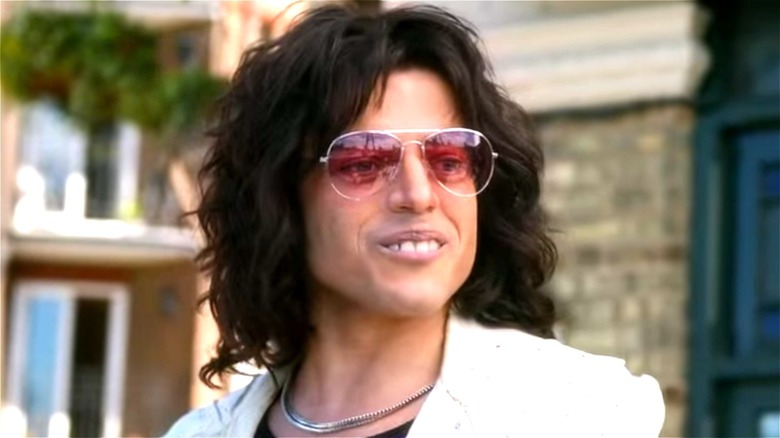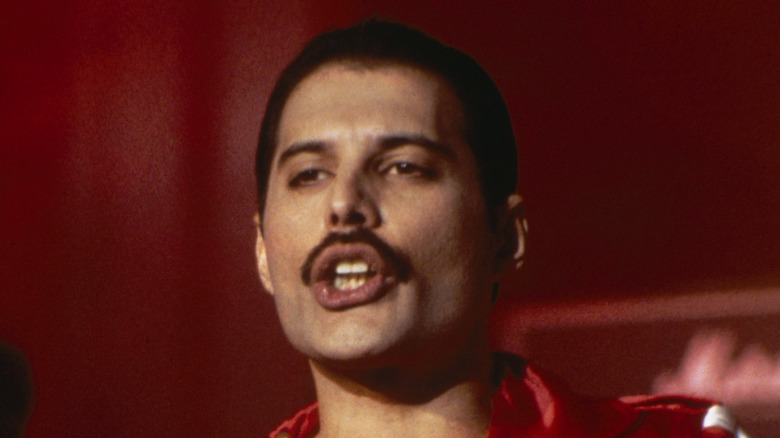What Is Wrong With Freddie Mercury's Teeth In Bohemian Rhapsody?
October of 2018 saw the premiere of "Bohemian Rhapsody" on the silver screen, a film that would go on to have the entertainment world talking for the remainder of the year and then some. This musical biopic told the story of legendary Queen frontman Freddie Mercury from his humble beginnings through his rise to fame as an international superstar. It also covered both the high and low points of his life, doing its very best to paint a cinematic portrait of his remarkable journey. Unsurprisingly, aside from a handful of outliers, moviegoers and critics ate it up.
Though not entirely faithful to Mercury's true story or a spot-on representation of the man he was, "Bohemian Rhapsody" did its best to honor the legacy of the rock legend. Rami Malek of "Mr. Robot" and "Papillion" fame was tasked with bringing Mercury to the big screen, and his performance was stellar, to say the least. His replication of Mercury's speech patterns, gestures, and stage presence was remarkable and contributed to the waves of praise he received from nearly everyone that watched the film. Not to mention, he even looked scarily like Mercury no matter which era he embodied.
A defining feature of Rami Malek's rendition of Freddie Mercury was his pronounced set of front teeth. At first glance, one would be inclined to believe their size and configuration were pure fiction, but this was far from the case. Here was the problem the real Mercury had with his mouth that made its way into Malek's portrayal.
Freddie Mercury's smile was literally larger than most
Freddie Mercury's smile, much like his legendary voice, was one of a kind. However, the reason it looked so unlike the average in real life and in "Bohemian Rhapsody" is thanks to mesiodens, otherwise known as supernumerary teeth. According to Toothology, Mercury had four extra incisors that led to overcrowding in his mouth, creating a form of malocclusion known as an overjet. Thus, his front teeth were pushed further forward than normal and shaped his famous grin in the way we recognize it today.
Of course, you're probably wondering why Freddie Mercury — a wealthy rock star with all sorts of connections — didn't end up getting his teeth fixed. After all, he made it clear that he was embarrassed about his condition and went to great lengths to hide his mouth, so why not get his mesiodens removed? Well, he felt the unique shape of his mouth allowed him to achieve the vocal range that put him on the map, and meddling with his teeth could lead to an unwanted change in his singing ability. Though this wasn't necessarily the case, he left them alone for his entire life all the same.
Freddie Mercury is one of the biggest and most enduring names to ever dominate the music scene. He and his Queen bandmates put out countless classic tracks, sold-out arenas worldwide, and gave Rami Malek a chance to shine, as well as an Oscar win, through "Bohemian Rhapsody." All the while, Mercury made the most of his unusual grin, looking at it as a blessing instead of a curse.

